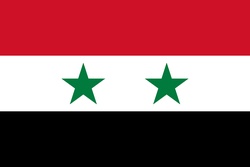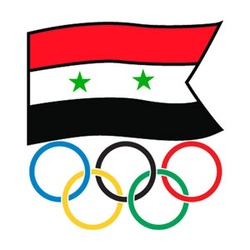Syria known as Syrian Arab Republic meaning Ancient Assyrian Empire is Located in the Middle East, between Turkey, Iraq and the Mediterranean Sea.
Most of its land consists of an arid plateau. However the coastal plain in the northwest of the country, running alongside the Mediterranean Sea has large areas of vegetation.
The capital city is Damascus. Agriculture is a considerable portion of the industry in Syria, employing nearly 42% of the labour workforce and accounting for 25% of the GDP.
Wishing to reduce its dependency on oil and agriculture the government has recently been looking to diversify the economy, attracting investment in natural gas, tourism and service sectors.




